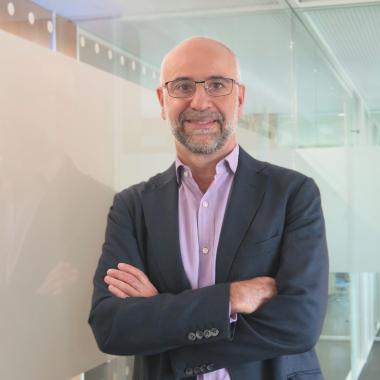
Javier Martínez-Picado
Javier Martinez-Picado is ICREA Research Professor at IrsiCaixa, a leading research center in infections and immunity located in Barcelona. He is also an associate professor at the Chair of Infectious Diseases and Immunity of UVIC-UCC, and an elected member of the Royal Academy of Science and Arts of Barcelona. He obtained his PhD in Microbiology from the University of Barcelona, where he also lectured as an associate professor. In 1996, he joined Massachusetts General Hospital as a research fellow at Harvard Medical School, where he devoted himself to HIV/AIDS research. In 2000 he obtained the position of biomedical researcher at the Spanish Health Department appointed to the Hospital Germans Trias in Barcelona. In 2006 he obtained his current ICREA position. Dr. Martinez-Picado serves on different government, academic and industry advisory boards, and has published more than 230 articles on virology and immunology, mainly related to the pathogenesis of HIV, in international journals.
His research is focused on characterizing the immuno-virological mechanisms of viral pathogenesis in human diseases, including HIV-1, Ebola virus, arenaviruses and, more recently, SARS-CoV-2. His group’s translational program has the ultimate goal of investigating potential new viral therapeutic strategies, especially in the field of HIV/AIDS, through basic and applied research. They work closely with other national and international biomedical institutes, focusing on three priority research topics: understanding viral persistence to tackle HIV cure strategies, viral pathogenesis mediated by myeloid cells, and extreme phenotypes of virus disease progression. As a result of the COVID-19 pandemic, they have expanded their research to the pathogenesis of SARS-CoV-2, implementing organoid models to assess viral infection and inflammatory responses.
The power of ten in HIV remission: insights from hematopoietic stem cell transplantation.
Author Correction: Sustained aviremia despite anti-retroviral therapy non-adherence in male children after in utero HIV transmission.
Massive endocytosis mechanisms are involved in uptake of HIV-1 particles by monocyte-derived dendritic cells
Massive endocytosis mechanisms are involved in uptake of HIV-1 particles by monocyte-derived dendritic cells.
Time to HIV viral rebound and frequency of post-treatment control after analytical interruption of antiretroviral therapy: an individual data-based meta-analysis of 24 prospective studies.